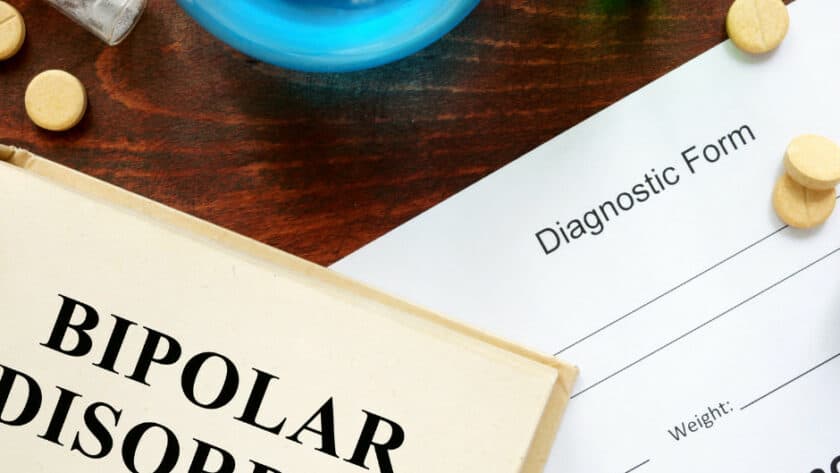How the Keto Diet Can Support Individuals with Bipolar Disorder
Bipolar disorder is a mental health condition characterized by extreme mood swings, including episodes of mania and depression. While medication and therapy are the primary treatments for bipolar disorder, recent research suggests that dietary changes. Such as adopting a ketogenic diet, may help support individuals with this condition. In this article, we’ll explore the potential benefits of the keto diet for people with bipolar disorder. Backed by scientific evidence and expert opinions.
Understanding the Ketogenic Diet
The ketogenic diet, or keto diet for short, is a high-fat, low-carbohydrate diet that has gained popularity for its potential weight loss and health benefits. By drastically reducing carbohydrate intake and replacing it with fat, the body enters a metabolic state called ketosis. In ketosis, the body becomes more efficient at burning fat for energy and producing ketones, which are molecules that can be used as an alternative fuel source for the brain.
How the Keto Diet May Benefit Individuals with Bipolar Disorder
While the keto diet is primarily known for its weight loss benefits, it has also been studied for its potential impact on various neurological and mental health conditions, including bipolar disorder. Here are some ways the keto diet may support individuals with bipolar disorder:
1. Stabilizing Mood and Reducing Symptoms
One of the primary benefits of the keto diet for individuals with bipolar disorder is its potential to stabilize mood and reduce symptoms. A study published in the journal “Medical Hypotheses” suggests that the ketogenic diet may have mood-stabilizing properties, which could be beneficial for individuals with bipolar disorder. The researchers propose that the diet’s ability to increase the production of ketones may help stabilize mood by providing a more consistent energy source for the brain.
Additionally, a case report published in the “Journal of Child and Adolescent Psychopharmacology” describes a young girl with bipolar disorder who experienced significant improvements in her symptoms after adopting a ketogenic diet. While this is only a single case, it provides preliminary evidence that the keto diet may help reduce bipolar symptoms in some individuals.
2. Reducing Inflammation
Chronic inflammation has been linked to various mental health conditions, including bipolar disorder. The keto diet has been shown to have anti-inflammatory effects. Which may help support individuals with bipolar disorder by reducing inflammation in the brain. A study published in the journal “Brain, Behavior, and Immunity” found that a ketogenic diet reduced inflammation in the brains of mice, suggesting that it may have similar effects in humans.
3. Improving Mitochondrial Function
Mitochondria are the energy-producing structures within cells, and their dysfunction has been implicated in the development of bipolar disorder. The keto diet has been shown to improve mitochondrial function. Which may help support individuals with bipolar disorder by enhancing cellular energy production. A study published in the journal “Neuroscience Letters” found that a ketogenic diet improved mitochondrial function in the brains of rats. This suggests that it may have similar effects in humans.
4. Enhancing Neuroprotective Factors
The keto diet has been shown to increase the production of certain neuroprotective factors. Such as brain-derived neurotrophic factor (BDNF), which may help support individuals with bipolar disorder by promoting brain health and resilience. A study published in the journal “Molecular Psychiatry” found that a ketogenic diet increased BDNF levels in the brains of mice, suggesting that it may have similar effects in humans.
Considerations and Precautions
While the keto diet may offer potential benefits for individuals with bipolar disorder, it’s essential to consider the following precautions:
– Consult with a healthcare professional before starting the keto diet. Especially if you have bipolar disorder or any other medical condition. They can help you determine if the diet is appropriate for your specific needs and provide guidance on how to implement it safely.
– The keto diet may not be suitable for everyone. And its effectiveness for bipolar disorder may vary from person to person. It’s essential to monitor your symptoms and work closely with your healthcare team. This is to determine if the diet is helping or causing any adverse effects.
– The keto diet can cause side effects, such as the “keto flu”. Which may include symptoms like fatigue, headache, and irritability. These side effects are usually temporary and can be managed by staying hydrated, replenishing electrolytes, and gradually transitioning to the diet.
– It’s crucial to maintain a balanced and nutritious diet while following the keto diet. Ensure you’re consuming a variety of nutrient-dense foods. Including non-starchy vegetables, healthy fats, and high-quality proteins, to support overall health and well-being.
Conclusion
The ketogenic diet may offer potential benefits for individuals with bipolar disorder. Such as stabilizing mood, reducing inflammation, improving mitochondrial function, and enhancing neuroprotective factors. However, it’s essential to consult with a healthcare professional before starting the keto diet. And monitor your symptoms closely to determine if it’s an effective and safe treatment option for you. Remember, the keto diet is not a substitute for medication and therapy. But may serve as a complementary approach to support individuals with bipolar disorder.



